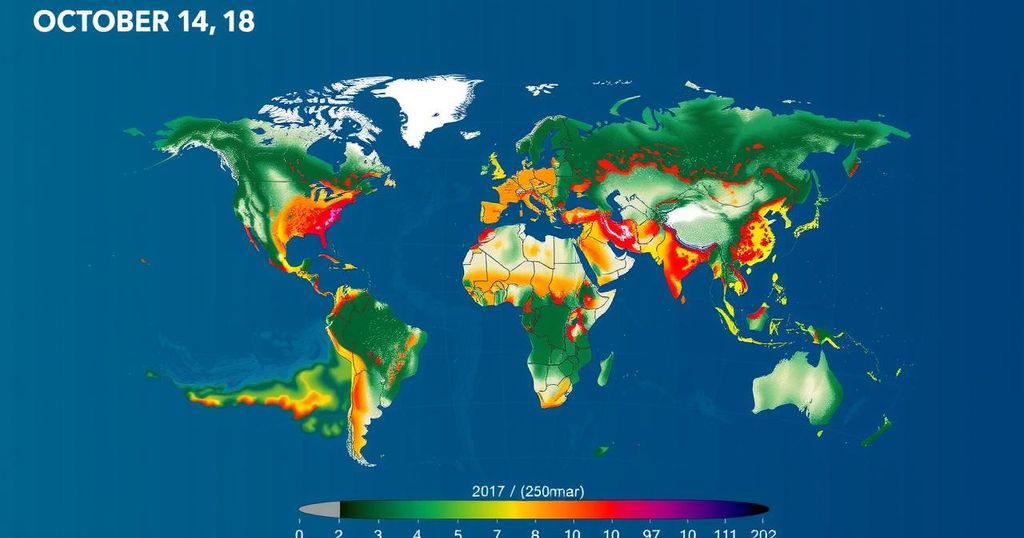Week in Review: Key Climate News from October 14-18, 2024
This week has been marked by significant climate news including alarming findings on ocean conservation efforts, disclosures revealing the politicization of disaster aid under Trump, the exacerbating impact of climate change leading to tragic floods in Nepal, Google’s pioneering move towards nuclear energy for data centers, and a distressing survey on climate anxiety among US youth.
This week’s climate news brings to light several alarming developments, emphasizing the ongoing challenges posed by climate change and the apparent shortcomings in conservation efforts. A report reveals that merely 2.8% of the world’s oceans are effectively protected, falling significantly short of the ambitious 30% goal set for 2030 by the Kunming-Montreal Global Biodiversity Framework. This indicates a worrying trend in ocean conservation just ahead of the upcoming UN Biodiversity Conference. On another front, former administration officials disclosed that disaster aid requests from predominantly blue states were initially denied during former President Trump’s term. These revelations contrast sharply with the politicization of disaster relief in cases like Hurricane Maria and Hurricane Michael, suggesting a troubling pattern in government response. In South Asia, new research indicates that human-induced climate change significantly intensified last month’s devastating floods in Nepal, which claimed 244 lives. The rainfall recorded during this event was unprecedented, demonstrating the increasing severity of weather patterns linked to climate change. In the tech sector, Google is moving towards sustainability by commissioning the construction of small modular nuclear reactors to power its data centers, a groundbreaking initiative in energy sourcing among major tech companies. Furthermore, emotions surrounding climate concerns are manifesting particularly among youth in the United States, with a survey revealing that a substantial majority express serious anxiety about climate change, indicating a broad-scale mental health crisis attributable to environmental factors. The findings underscore the urgent need for substantial climate action that resonates across political affiliations.
The article provides a comprehensive overview of significant climate-related events from October 14 to 18, 2024. It addresses pressing issues such as the shortcomings in ocean protection efforts ahead of a crucial biodiversity conference, the political context affecting federal disaster aid, the impact of climate change on extreme weather events, innovations in sustainable energy within the tech industry, and the deep psychological effects of climate anxiety among American youth. This collection of reports highlights the multifaceted nature of the climate crisis, demonstrating its far-reaching implications for society, politics, and public health.
In summary, the week’s climate news underscores a critical juncture in the global response to environmental changes. The lack of effective ocean protection raises alarms as the 2030 target approaches, while political influences on disaster aid responses reveal obstacles to equitable emergency management. Additionally, the connection between human-induced climate change and recent weather disasters like the Nepal floods exemplifies the urgent need for comprehensive climate solutions. The initiatives by technology companies like Google to adopt nuclear energy signal progress, albeit insufficient compared to the scale of action required. Lastly, the alarming emotional distress reported among young individuals reflects an urgent call for substantial policy initiatives and public engagement to address both climate change and its psychological ramifications.
Original Source: earth.org




Post Comment